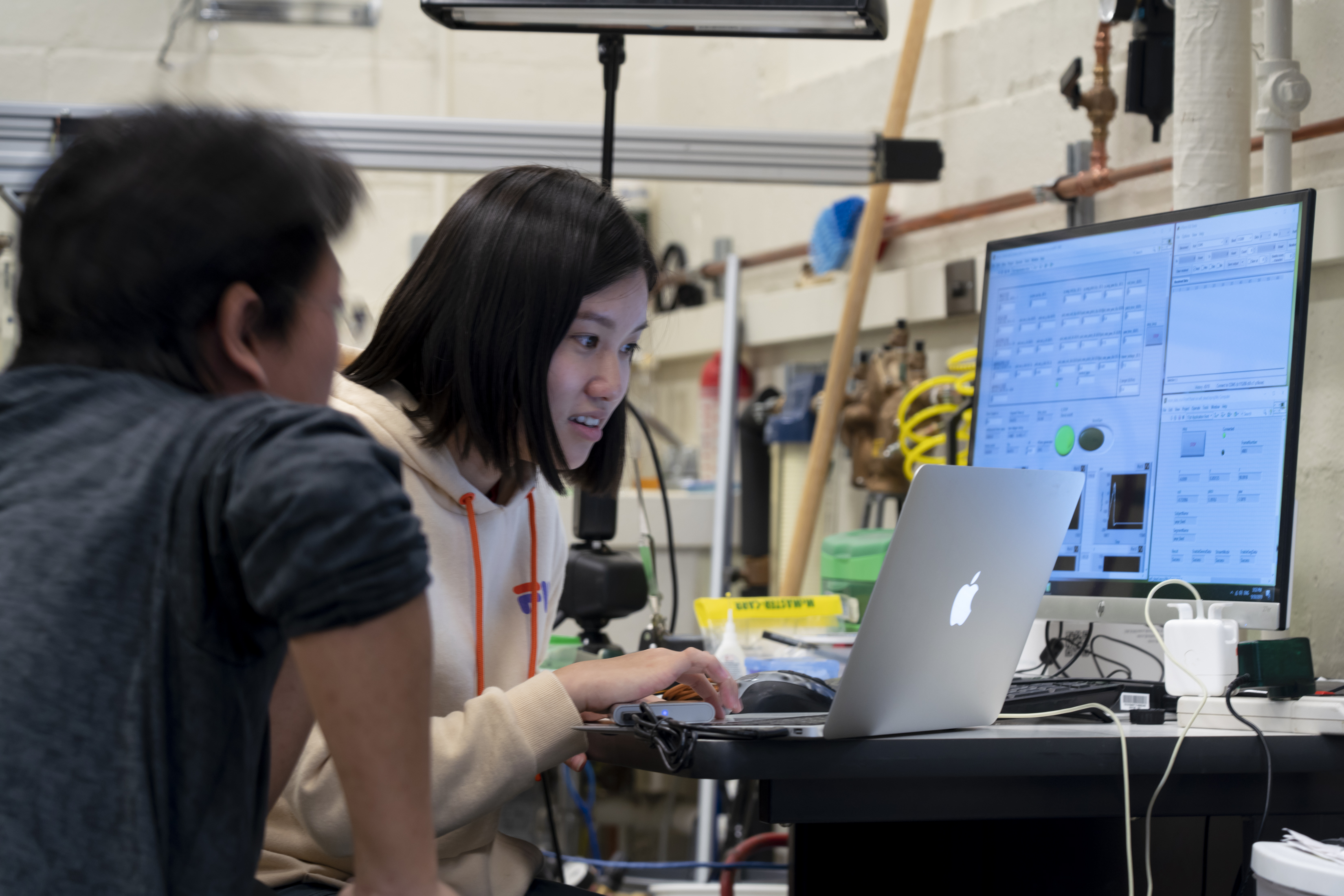From the inventor of the ethernet David Boggs to the pioneer of LED lighting Nick Holonyak Jr., electrical and computer engineers are the people behind the technologies that now define our lives. Whether it’s the smartphones we can’t live without, the computers that connect us to the world, or the renewable energy systems that promise a more sustainable future, these engineers are the ones designing and creating the innovations that keep us connected and thriving.
More breakthroughs await, especially in exciting fields like artificial intelligence (AI), cybersecurity, and the Internet of Things (IoT). For those considering a career in these fields (and beyond), now is a great time to join Purdue University.
Consistently ranked among the top 10 public universities in the US, Purdue is home to two colleges ranking in the top four nationally and producing the most STEM graduates. At the centre of this thriving academic ecosystem is the Elmore Family School of Electrical and Computer Engineering (ECE), the largest academic unit at Purdue and the nation’s premier ECE department.

At the School of Electrical and Computer Engineering, students can join both short-term and long-term research projects with Purdue faculty. Source: Purdue University
Project-Track Master’s Programme: A curriculum continuously updated with cutting-edge technologies
In a world where continuous learning is vital, ECE recognises the importance of advanced degrees in furthering knowledge and skills. Its new programmes, which reflect emerging technologies, do just that – putting students at the forefront of their field. Many Project Track Master of Science in Electrical and Computer Engineering students, including Boluwatife Tawab Fashina who took the Artificial Intelligence and Machine Learning course, believe they’re now better positioned to advance their careers.
“I joined Purdue after working two years full-time as an engineer and while I have a lot of technical skills to solve problems, I realised to progress in my career I had a lot more to learn,” he says.
Purdue’s Project-Track MS-ECE offers a wide range of courses in cutting-edge fields, such as Embedded Systems, Advanced Internet of Things Design and Applications, Computer Vision for Embedded Systems, Artificial Intelligence, Machine Learning, Introduction to Applied Cryptography, Hardware and Software Security, and Holistic Software Security.
Many of these courses include hands-on projects that address real-world problems. They bridge the gap between theory and practice, thanks to input from an industry advisory board that ensures the curriculum is consistently updated to reflect the latest research and collaborations.

The MSECE project track enhances students’ technical knowledge while also developing their teamwork and leadership skills, which will be invaluable in their engineering careers. Source: Purdue University
Design project: “I’m quickly growing as a more competent engineer every day”
What makes the Project Track MSECE unique is its inclusion of a multi-semester team design project. Each team has to define the project goals/metrics, including “proof-of-concept” demonstrations for the main aspects of the proposed approach, and work on iterations through stages of design, final demonstration, and testing to verify the operation of key functionalities and quantify metrics – all of which are modelled on the processes of leading technology innovation companies.
For Sean Soonhyung Hwang, this aspect was a significant draw to ECE. Currently, he’s working on a project called Smart Pet Monitoring, aiming to develop a system that uses computer vision and audio classification to track and analyse pet behaviours.
“I don’t enjoy learning from textbooks,” he says. “Getting hands-on experience gives me so much more opportunity to learn. I enjoyed a semester-long senior design project during undergraduate school, so the fact that I could have a 1.5-year project experience completely sold me. As I expected, I can feel that I’m quickly growing as a more competent engineer every day.”
The benefits of this experiential approach are clear. Cristian Washburn, another student in the programme, notes how the Project Track has already helped him in his career goals. “All the companies I have talked/interviewed with have expressed interest in the practicality of the programme,” he says. “These companies are interested because they are looking for people and new employees with practical knowledge and not just theoretical/academic knowledge from textbooks or a formal thesis.”
From Purdue ECE to the front of the industry
The ECE Graduate Office and programme advisors offer personalised guidance, helping students tailor their academic experience to align with their interests and career aspirations. Purdue’s Center for Career Opportunities (CCO) enhances this support by connecting students with industry professionals — many of whom are Purdue alumni — through career fairs and events like the Industrial Roundtable. The university also frequently invites guest lecturers, including executives and CTOs, to share insights and industry perspectives.
To further assist ECE graduates in securing roles in high-demand sectors, Purdue ECE has established an office dedicated to industry partnerships that regularly hosts recruiting and speaking events with leading companies such as AMD, Keysight Technologies, GE Aerospace, Boeing, John Deere, and BorgWarner. With their help, recent graduates have managed to pave diverse and impactful career paths in AI, cybersecurity, IoT, and other emerging fields. Some notable positions include Machine Learning Engineer at Apple, Embedded Software Engineer at John Deere, and Deep Learning Software Engineer at NVIDIA.
Learn more about Project-Track Master’s Programme in Electrical & Computer Engineering.
Follow Purdue Engineering on Facebook, X, Instagram, YouTube, and LinkedIn













